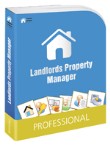 |
 |
 |
 |
 |
 |
 |
 |
 |
 |
Landlords – 7 Ways to Minimise Your Property Taxes...
Minimising taxes is one of the easiest ways to boost your property profits. Here are seven tips to help you...
1) Claim Costs as Revenue Expenses
In the current climate, where possible ensure that expenses are deductible as revenue expenses, as they will minimise your income tax. For example, the cost of replacing single glazed windows with double glazed windows can be claimed as a revenue expense.
2) Claim ‘ALL’ Property Expenses
If you have made any expenditure then make sure that you keep a permanent record of it, so it isn’t overlooked when you come to claim it as an expense. It doesn’t matter how small or large the expense is and remember the Tesco strap line...’Every Little Helps’!
3) Timing Can Be Everything
Record low interest rates have lead to many more landlords making a profit on their rental income. If this is the case then you could end up with a hefty tax bill even after all your expenses have been paid. So to help minimise your tax burden, consider making some ‘repairs’ in the same tax year to bring down the tax bill.
4) Avoid Capital Gains Taxes
If you can, always consider letting out a property that has previously been your main residence. It is the simplest and most effective way to avoid capital gains tax!
5) Make Sure You Register Any Rental Losses
If you have made losses in the previous tax years then by registering them with HMRC you will be able to carry them forward indefinitely and offset them against future profits.
6) Using Your Car for Your Property Business?
If yes then you will need to apportion the cost of the car between business and private travel each tax year. If your total miles for the year are 12,000, for example, and your property related trips total 2,000 miles, you can claim 2/12 of your car costs e.g. road tax, servicing, insurance, MOT etc.
7) Switch Property Ownership with Your Spouse if they are Lower Rate Taxpayers
If you have a spouse who is a lower rate (or even nil rate) taxpayer and you are a higher rate taxpayer, consider moving the greater portion of the property ownership into their name

Want to slash your landlord taxes and boost profits? Due to popular demand we've just launched our Landlords Tax Workshop - click here to learn more!
|
 |
 |
|
 | |
 |
 |
 |
 |
 |
Amer's Cashflow Tip...
How Good are Your Property Records?
One of the easiest ways to keep on top of your property cash flow is to keep good and proper records that show all of your income and expenses.
Doing this also means that when it comes round to doing your tax returns, you save time, money and effort because you have good records. Regardless of whether you use an accountant or submit your self assessment tax return yourself, your records will prove invaluable.
If you are still using manual records or spreadsheets then why not consider using our award-winning ‘Landlords Property Manager’ software to make your life easier so you can do more?

Want to Get Better Organised in 2011
Streamline your property business so you can do more in 2011.
Click here to see the new benefits and time saving features of Landlords Property Manager Version 8.
|
 |
 |
 |
 | | |
 |
 |
 |
 |
 |
Landlord Property
Manager
Landlords Property Manager - Now officially recognised as the No 1 Solution!

Try our landlord software solutions to help you get better organised, slash your professional fees and boost your cash flow.

Click here to learn more
What our Customers Say!
This is excellent software and makes sure I stay well organised, try it you won't be sorry!Derek Leven,
Landlord, West Midlands
Click here for more customer success stories
Property Tax Insider - 1st Issue Free...
Want to slash your property taxes?
Receive the first issue of our new property tax saving magazine for FREE!
In this month's Property Tax Insider:
- Optimising Tax Relief – Capital v Revenue Expenses!
- Claiming Capital Allowances for ‘Integral Features’
- Spouse Jointly Owned Rental Properties: Part 1
- Don’t Lose Your CIS Gross Status!
|
 | |
 |
 |
 |
 |
 |
Arthur Weller Answers Your Tax Questions
 Question - What is the CGT Liability for Property that is Partly PPR? Question - What is the CGT Liability for Property that is Partly PPR?
Please could you tell me what Capital Gains Tax (CGT) each party would pay if there was a 50/50 ownership at sale but it was one of the owner’s primary residence?
Arthur Says: If A and B own a property 50:50, then the sale proceeds and the base cost of the property are divided in two, and two separate CGT calculations are made, one for A and one for B. If it is A's principle private residence, then A will be exempt from any CGT but B will be liable in the normal way on B's half. This kind of scenario can occur in a divorce situation, when A stays in the property and B moves out.
Some time later the property is sold, but since moving out it is no longer B's PPR. The last three years of ownership of B will be deemed to be occupied and therefore eligible for PPR relief, because previously B actually occupied the property.
Arthur has carried out over 500 tax consultations through our sister website Property Tax Portal. If you need Arthur to help you slash your landlord taxes, visit the website.
Simon's Student Landlord Tips...
 How to Get Your Students To Pay Rents On Time How to Get Your Students To Pay Rents On Time
Student landlords should obtain emails and telephone numbers when signing the contract. If someone's rent is late, email all the tenants, not just the one at fault, so the tenants can hassle each other to solve the situation. Better still, get the tenants to open their own household account so they send only one rental payment.
Simon Thompson is Founder of Accommodation for Students.
|
Tessa's Legal Tip...
|
|
 Are Short Lets an AST? Are Short Lets an AST?
I often get asked about short lets – are they an AST? The answer is “Yes they are”.
When ASTs first came along in 1989 there was this requirement that they had to be for a minimum period of 6 months. However this requirement was done away with in subsequent amendments to the Housing Act 1988 which came into force on 28 February 1997. Form that time on, all tenancies (or all tenancies which are subject to the Housing Act 1988) are automatically ASTs.
So you can have an AST for a week, for a month, or for whatever period of time you want (short lets only – lets of over 7 years have different considerations).
The six months period is still relevant however as a Judge cannot make an order for possession under section 21 within the first six months of a new tenancy.
Tessa Shepperson is a solicitor and runs the popular Landlord Law website at http://www.landlordlaw.co.uk/ – where members can download and use her professionally drafted section 21 notices.
| | |
| |
| |
 |
| | |
 |
 |
 |
 | | |
 |
 |
 |
 | |